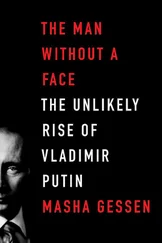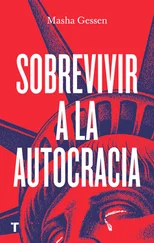• • •
ZUBEIDAT TRIEDperhaps harder than anyone else in the family—for herself and for her children. Her efforts at translating documents or attending classes on negotiation were not just an unreasonable reach given her education and background: they were also unreasonably brave. To help her children succeed, she pursued whatever seemed like a good idea at the moment. In 2004 she asked Joanna to help the girls join a church choir. Joanna enrolled them in the Handel and Haydn Society youth chorus, where they would sing for a year and a half. Joanna did much of the driving for the girls. She also introduced Bella to several folk-dancing groups until the girl joined one she liked in Concord, Massachusetts, fifteen miles away.
In 2006, Zubeidat enrolled in the Catherine Hinds Institute to study to be a beautician—not exactly Harvard Law, but more glamorous than home care. The institute was a good fit. Beautiful herself, chatty, and attentive, Zubeidat was a natural at what was, in effect, her first occupation, acquired at the age of forty. She supplemented her education by taking private lessons in cosmetic tattooing. A Russian woman studying alongside her was planning to open her own salon as soon as they graduated in the spring of 2007. She offered Zubeidat a job, and soon Zubeidat was commuting to Belmont, four miles west of Cambridge. Things at the salon began well but slowed in the aftermath of the 2008 financial crisis. As time went on, Zubeidat got less and less business there. Some of the post-bombing reporting has suggested that her new religiosity was to blame, but this does not appear to have been the sole or possibly even the main reason. Business was slow, and by the end of 2008 the salon shut down.
• • •
SOMETIME IN 2010,or maybe 2009, it would have become clear: it was as though the Tsarnaevs had never come to America. They had struggled with the language and with the people, and with buying furniture on credit. The living room now had a large plush sectional sofa, oriental rugs, and a mirrored credenza housing plates and thin-walled cups chosen to look as though they had been in the family for at least a generation. They had achieved the look every Chechen living room had, from Grozny to Tokmok to Boston, but then, their own living rooms in those places had boasted that look as well.
Tamerlan was dealing drugs.
Anzor was fixing clunkers in the street.
The neighbors hated them.
Bella and Ailina had neither graduated from high school nor succeeded in their marriages; their children were with them rather than with the fathers’ families, so their chances of finding new Chechen husbands were vanishingly small. No one had gotten an education, if you did not count Zubeidat’s aesthetician certificate.
Ziaudy, Ailina’s son, had a learning disability.
The apartment was bursting with people. In the second half of 2009, the small three-bedroom was home to: Anzor, Zubeidat, Tamerlan, Dzhokhar, Bella, Ailina, the toddlers Ramzan and Ziaudy, and Malkan’s teenage son Husein, whom Ruslan had brought to the United States but placed with Anzor’s family. In the summer, the teenagers took possession of the barbecue area at the condo association across the street, drinking, smoking, and playing music until all hours; the residents seem to have been too timid to confront them. The apartment was clean, but crowded and cluttered beyond reason: it no longer felt like community—it resembled a refugee camp. Anzor and Zubeidat had stymied Joanna’s efforts to help. Instead of easing the immigrants into her reality, Joanna had fallen into theirs, with its imaginary family heirlooms capable of covering debts that had grown hopeless. At some point the smell of defeat became so thick that everyone had to run away.
At the end of 2008, Zubeidat managed to place Ailina in an independent living arrangement under the auspices of a battered women’s shelter. Ailina stayed a few months and then took off for New York, where she had somehow acquired friends. After her own trip to Kazakhstan to fetch Ramzan, Zubeidat went to New York and brought Ailina and Ziaudy home, too. Bella started attending the Catherine Hinds Institute. Ailina was admitted to a school where she would study to become an X-ray technician, but she could not borrow money for tuition because she had destroyed her American papers. Then Bella’s green card disappeared as well.
At the end of 2009, after two years at Cambridge Rindge and Latin, Husein moved to Maryland to stay with Uncle Alvi.
At the start of the summer of 2010, Zubeidat went to Russia, alone, and stayed for six months.
Soon after she left, Bella and Ailina and their children disappeared—presumably, to New York again. No one at Norfolk Street would hear from them until Zubeidat returned in December. She reported that they were doing all right: Ailina was home with the children and Bella was working as a waitress. Later there was some conflicting information about that. Ailina was apparently back in town in the fall of 2010, at least long enough to get arrested for trying to use counterfeit money to pay a restaurant bill. She was arraigned in Boston in January 2011 but failed to show up for her hearings—when she finally appeared in court two and a half years later, she would tell the judge she had been indigent.
Zubeidat went back to home health aide work, which now seemed to involve more overnights. By mid-2011 she was rarely staying at Norfolk Street.
Dzhokhar graduated from Rindge and in September moved to live on campus at the University of Massachusetts Dartmouth, just outside New Bedford, about an hour’s drive south of Boston.
In the fall of 2011, Anzor and Zubeidat filed for divorce.
At the start of 2012, the apartment was home to Tamerlan; his wife, Karima; their daughter, Zahira; Zubeidat, who was not really there; and her now ex-husband, Anzor. Zubeidat had also arranged for Ziaudy to attend kindergarten in Cambridge, so he was there, too, primarily in Karima’s care.
In January, Tamerlan went to Dagestan, ostensibly to renew his Russian passport—something that could have been done at the Russian consulate in New York, which would have charged him a lot for it, but still less than the cost of a round-trip ticket to Russia.
In February, Anzor moved out of the apartment to stay with a friend. Once he received his U.S. passport, in May, he left the country. Zubeidat, who was now visiting the apartment only occasionally, said that Anzor was traveling to Germany for diagnosis—a tumor had developed at the site of his skull injury and American doctors wanted to operate, but the Germans might be able to spare him the surgery. In fact, he went straight to Dagestan.
In June, his kindergarten year over, Ziaudy returned to Ailina.
Tamerlan came back from Dagestan in July. Two weeks later, Zubeidat left for Dagestan: she said she had to care for her brother there—he had cancer. When I met Zubeidat a year later, she was indeed caring for him as he died. At the time she left the United States, she was facing criminal charges for shoplifting at a Lord & Taylor in the Boston suburb of Natick—she knew that leaving meant she would be unable to come back, unless she was willing to face jail.
Karima took over Zubeidat’s home health aide work. Tamerlan stayed home with Zahira. He was good at it: responsible and caring and sure to take her for a walk or a tricycle ride at the same time every day. Most days now, he wore loose sweats rather than his flashy “European style” clothes.
• • •
WHAT DID AMERICAlook like from the third floor of 410 Norfolk Street ten years after Anzor and Zubeidat first crossed the Atlantic Ocean? It made scarcely more sense now than it had back then. Television news combined with their landlady’s conversation and Cambridge’s progressive civics and history lessons never formed a coherent picture, much less the kind of flow of information that allows immigrants—at least those who successfully integrate into their new society—to inhabit the same story as the people among whom they now live. Instead, information continued to come in scraps, as it does to newcomers. Each scrap is tried on for size as a theory of everything. The more crudely it simplifies reality, the better it is suited for that purpose.
Читать дальше












